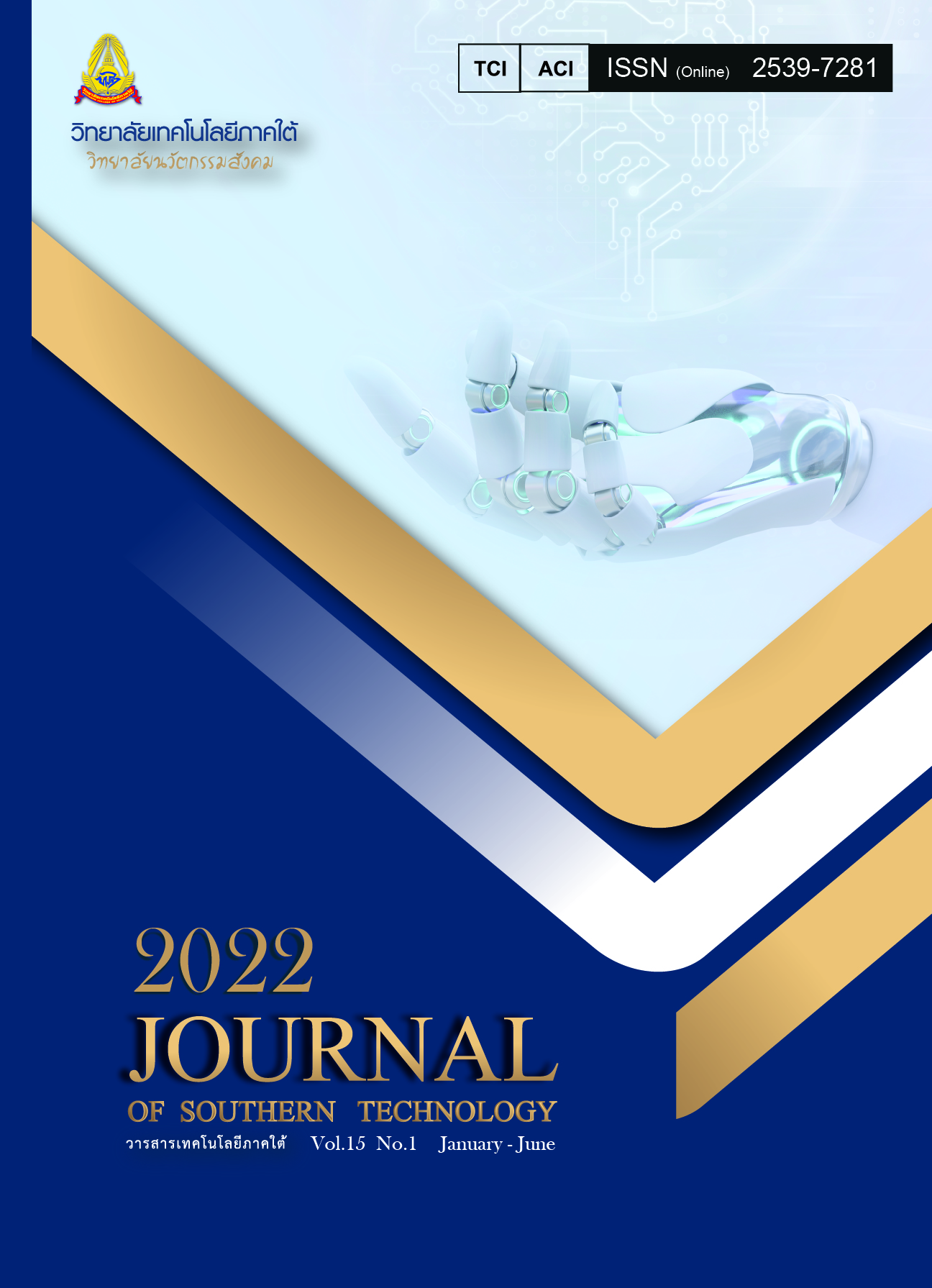ผลกระทบของการวางแผนภาษีเงินได้นิติบุคคลที่มีผลต่อมูลค่ากิจการของบริษัท ที่จดทะเบียนในตลาดหลักทรัพย์แห่งประเทศไทย กลุ่มดัชนีหลักทรัพย์ SETCLMV
Main Article Content
บทคัดย่อ
กิจการที่มีการใช้สิทธิประโยชน์ทางภาษีอย่างเต็มที่จะส่งผลให้กิจการมีค่าใช้จ่ายในการดำเนินงานลดลง เกิดความได้เปรียบทางการแข่งขัน และอาจทำให้มูลค่ากิจการเพิ่มขึ้น แต่ถึงแม้จะมีการควบคุมจากหน่วยงานที่เกี่ยวข้องแต่ก็ไม่สามารถทำให้พฤติกรรมการหลีกเลี่ยงภาษีหมดไปได้ การศึกษาครั้งนี้จึงมีวัตถุประสงค์เพื่อศึกษาการวางแผนภาษีเงินได้นิติบุคคลที่มีผลต่อมูลค่ากิจการของบริษัทที่จดทะเบียนในตลาดหลักทรัพย์แห่งประเทศไทย กลุ่มดัชนีหลักทรัพย์ SETCLMV โดยรวบรวมข้อมูลจากงบการเงิน และแบบรายงานประจำปี (แบบ 56-1) กลุ่มตัวอย่าง คือ บริษัทที่จดทะเบียนในตลาดหลักทรัพย์แห่งประเทศไทย กลุ่มดัชนี SETCLMV จำนวน 37 บริษัท ในช่วงเวลาตั้งแต่ปี พ.ศ. 2559-2563 รวมเวลา 5 ปี เครื่องมือที่ใช้ในการศึกษาและทดสอบสมมติฐานประกอบด้วย สถิติเชิงพรรณนา สัมประสิทธิ์สหสัมพันธ์ของเพียร์สัน และการวิเคราะห์สมการถดถอยแบบพหุคูณ ผลการศึกษา พบว่า การวางแผนภาษีที่มีผลต่อมูลค่ากิจการ ได้แก่ ผลต่างระหว่างกำไรทางบัญชีกับกำไรทางภาษีมีผลต่อมูลค่ากิจการในเชิงบวกที่ระดับนัยสำคัญทางสถิติ .01 ส่วนอัตราส่วนภาษีเงินได้ต่อสินทรัพย์รวมมีผลต่อมูลค่ากิจการ ในเชิงลบที่ระดับนัยสำคัญทางสถิติ .1 ตัวแปรควบคุมที่มีผลต่อมูลค่ากิจการ ได้แก่ ขนาดของบริษัท และประเภทอุตสาหกรรมมีผลต่อมูลค่ากิจการในเชิงลบที่ระดับนัยสำคัญทางสถิติ .01 ส่วนความเสี่ยงทางการเงินของบริษัทมีผลต่อมูลค่ากิจการในเชิงลบที่ระดับนัยสำคัญทางสถิติ .1 อัตราภาษีที่แท้จริงและอัตราส่วนภาษีเงินได้ต่อกระแสเงินสดจากกิจกรรมดำเนินงานไม่มีนัยสำคัญทางสถิติ จากผลการศึกษา นักลงทุนสามารถเลือกลงทุนโดยพิจารณาจากการวางแผนภาษีของกิจการซึ่งการวางแผนภาษีสูงอาจสื่อถึงการบริหารกำไร และหน่วยงานที่เกี่ยวข้องสามารถใช้ในการพิจารณาออกมาตรฐานในการป้องกัน ควบคุมการหลีกเลี่ยงภาษี และกำหนดนโยบายต่าง ๆ ให้มีความสอดคล้องเหมาะสม
Article Details

อนุญาตภายใต้เงื่อนไข Creative Commons Attribution-NonCommercial-NoDerivatives 4.0 International License.
- ผู้เขียนต้องยินยอมปฏิบัติตามเงื่อนไขที่กองบรรณาธิการวารสารกำหนด และผู้เขียนต้องยินยอมให้บรรณาธิการ แก้ไขความสมบูรณ์ของบทความได้ในขั้นตอนสุดท้ายก่อนเผยแพร่
- ลิขสิทธิ์บทความเป็นของผู้เขียน แต่วารสารเทคโนโลยีภาคใต้คงไว้ซึ่งสิทธิ์ในการตีพิมพ์ครั้งแรก โดยเหตุที่บทความนี้ปรากฏในวารสารที่เข้าถึงได้จึงอนุญาตให้นำบทความไปใช้เพื่อประโยชน์ทางการศึกษา แต่มิใช่เพื่อการพาณิชย์
เอกสารอ้างอิง
Christina, S. (2019, March). The effect of corporate tax planning on firm value. Accounting and Finance Review, 4(1), 1-4.
Field, A. (2009). Discovering Statistics Using Spss Third Edition. London: SAGE Publications Ltd.
Ilaboya, O.J., Izevbekhai, M.O., & Ohiokha, F.I. (2016). Tax planning and firm value; a review of literature. Business and Management Research, 5(2), 81-91.
Kerdsiri, P. (2017). Financial Accounting and Taxation Accounting: Homophones (2nd ed). Bangkok: Dharmniti Press Company Limited. [in Thai]
Lestari, N., & Wardhani, R. (2015). The effect of the tax planning to firm value with moderating board diversity. International Journal of Economics and Financial Issues, (5), 315-323.
Pongpasut, A. (2012). Advanced Tax Planning and Strategy. Bangkok: Chuanpim 50 Company Limited. [in Thai]
Santana, L., & Luis, S. (2016). Corporate tax avoidance and firm value: evidence from Brazil. SSRN Electronic Journal, 13(30), 114-133.
Thailand Government Spending. (2021). Revenue Collection Results of the Revenue Department in 2020 compared with 2019. Retrieved 2021, May 12, from https://govspending.data.go.th/dashboard/5 [in Thai]
Thanjunpong, S. (2018). The impact of corporate income tax planning on firm value: an empirical evidence from listed companies in Thailand. Journal of Modern Management Science, 11(2), 42-57. [in Thai]
The Revenue Department. (2017). Corporate Income Tax and Prohibited Expenses. Retrieved May 12 2021, from http://download.rd.go.th› insight_pasi› CIT-201801 [in Thai]
The Stock Exchange of Thailand. (2015). Stock Valuation. Retrieved April 27, 2021, from https://www.set.or.th/education/th/begin/ stock_content05.pdf [in Thai]
The Stock Exchange of Thailand. (2017). SET CLMV Exposure Index. Retrieved April 27, 2021,from https://www.set.or.th/ education/th/ begin/stock_content05.pdf. [in Thai]
Wang, F., Junqin, S., Cullinan, C., & Xu, S. (2019). corporate tax avoidance: a literature review and research agenda: corporate tax avoidance. Journal of Economic Surveys, 34(3), 793-811.
Yorke, S.M., Amidu, M., & Boateng, C.L. (2016). The effect of earnings management and corporate tax avoidance on firm value. International Journal of Management Practice, 9(2), 112-131.
Zimmerman, J.L. (1983). Taxes and firm size. Journal of Accounting and Economic, 5 (1), 119-149.

